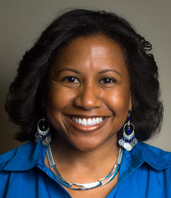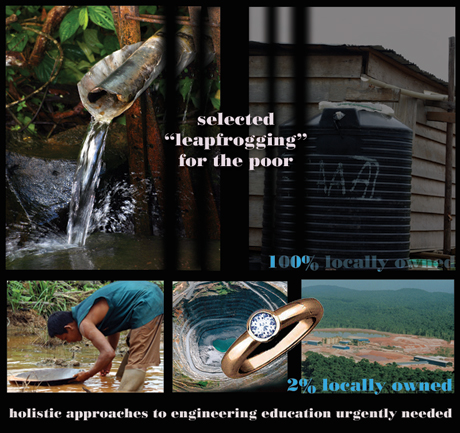
I grew up and completed high school in Guyana, the only English speaking country located on the northeastern shoulder of South America, with Venezuela, Brazil and Suriname as its neighbors. Between 1970 and 1985 local development policies placed a high emphasis on the development of local capacity in applied science and technology, a focus that was underscored by the need to find energy and food alternatives in the face of the government's banning of imported food items (such as wheat flour, a staple in Guyanese diets) and gasoline. In retrospect, that period of imposed self sufficiency was my introduction to sustainability and food and energy security, all areas that currently pose challenges for our profession. From the mid-1980s, a move away from declared socialist policies and their accompanying extensive nationalization, and the adoption of International Monetary Fund prescribed structural adjustment programs, have seen the expansion of private industry, and growing investments by multinationals in industries like gold and forestry mining. Most of this investment takes place in the country's hinterland region (more than 90% of the population lives on Guyana's Atlantic coast). In 1995, a tailings dam failure from OMAI, a large open pit gold mine that was using cyanide leaching processes, highlighted the lack of local environmental laws, analytical capabilities, and awareness of the potential impact of the project on community water supplies. The spill, which occurred at the start of my graduate career, solidified my interest in geochemistry and demonstrated the importance of public engagement and the need for broader participation by vulnerable communities in decision making processes on matters important to their well being. Similar vulnerabilities were underscored in January 2005, when floods inundated the country’s coastal low-lying areas, causing massive displacement of communities, affecting 85% of the population and 59% of the country’s GDP , and leading to the emergence of several domestic Non Governmental Organizations (NGOs) dedicated to building local capacity around issues related to environment, education, health and social welfare in Guyana. These issues are in no way unique to Guyana, therefore I believe that my personal experience helped foster my ability to think globally and to act, through the integration of research, education and outreach, in ways that have both a specific/local and broad/global reach—a necessity in our networked age. My research, teaching and service are at the nexus of geochemistry/water quality and global/community sustainability. My interests are interdisciplinary, applied and seek to forge non-traditional university partnerships. In this they are enabled by the unique environment at the University of South Florida (USF), the 9th largest university in the United States.
It is within this dynamic and supportive environment that I have built my program, having been directly involved with all of the activities listed above, either through securing external and internal fundingfor research and education or in an advisory capacity.
The University of South Florida's location makes it possible to pursue research and training activities in Guyana and the Caribbean. In March 2005 the Dean and heads of each engineering department visited UWI, St. Augustine to establish links with their college of engineering.
|
||
|



